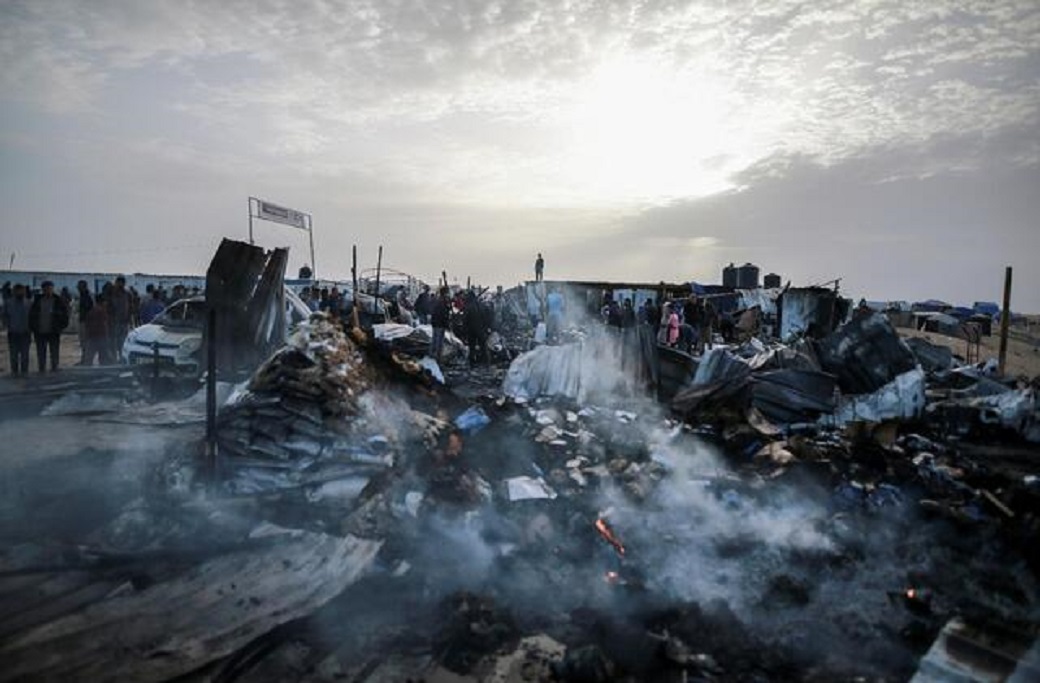FARAAN: Channel 12 of Israeli television reported that the army has advised the political leaders of the regime to end the Rafah operation in southern Gaza as soon as possible and to proceed with an attack on Lebanon.
Analysis:
The recommendation by the Israeli army to shift focus from Gaza to Lebanon raises critical strategic and political questions. An attack on Lebanon could have far-reaching consequences, both for the region and for Netanyahu personally. Here are some key points to consider:
The strange aspect of this news, despite its significance, is that the source is the Israeli military and not the cabinet of this regime, which is responsible for outlining military strategies and objectives. Even more surprising is that this news was publicly broadcasted in Israeli media and newspapers, whereas the military, due to the sensitivity of the matter, could have provided its recommendations confidentially to political leaders.
Furthermore, these same sources publicly announced that the new Israeli war council held a meeting last night to discuss the security and military situation on the front with Lebanon, without mentioning the decisions made in this meeting. In the meantime, the American website Axios, quoting Israeli officials, wrote: “Amos Hochstein, the special envoy of Joe Biden, the President of the United States, will arrive in Israel on Monday to prevent the tension between the regime and Hezbollah in Lebanon from turning into a full-scale war.”
If we place this news in the context of the field developments in Gaza, particularly Rafah, and the heavy losses the Israeli forces have suffered in recent days, as well as what is happening in northern Palestine with Lebanon, we can conclude that all the talk about preparing the “northern front” for a large-scale attack on Lebanon and the claim that the Israeli army is waiting for a decision from the political leadership are hollow words. The purpose of these threats is to try to justify Netanyahu and his cabinet’s failures in a way that does not embarrass the so-called invincible Israeli army and its superpower supporters, such as the United States, who have been unable to achieve their goals in nine months of war in Gaza.
The occupying forces have not only failed to achieve any of their aggressive objectives against the resistance and the siege of Gaza, but they have also lost thousands of soldiers and suffered injuries, losing about 50% of their equipment and weapons in a war that has been ongoing for more than 8 months. Can these weary and exhausted forces from this grueling war take the risk of opening another front to fight Hezbollah? Hezbollah is much stronger than the other besieged resistance forces in Gaza, having used only 5% of its military and weapon capabilities so far, and it holds a strategically advantageous geographic position in Lebanon, the region, and the world.
What has become evident with the aggression of the United States and Israel against Gaza, and what has changed all the American and Israeli calculations and equations, is the unity of action and the alliance of the regional resistance fronts within the framework of their shared strategic grounds. This unity has prevented Gaza from being exclusively monopolized by the American and Israeli sides. If Netanyahu commits the biggest mistake of his life by attacking Lebanon, these resistance fronts will become even more intertwined with each other.
Opening a battlefront with Lebanon is not favorable for Netanyahu. If he makes this foolish mistake, he must count the missiles that were fired from Lebanon towards his entity in just three days—251 missiles on Wednesday, 150 missiles on Thursday, and 34 missiles along with 16 drones on the past Friday—and multiply that number several times over. He must consider the missiles and drones of the resistance axis, along with thousands of combatant fighters from the resistance axis countries, who will be sent to Lebanon to humiliate him, just as he was humiliated in Gaza.










